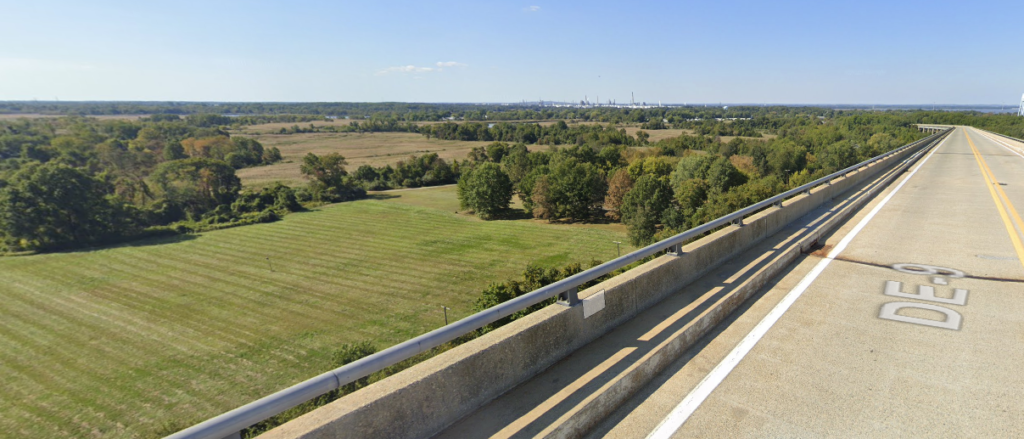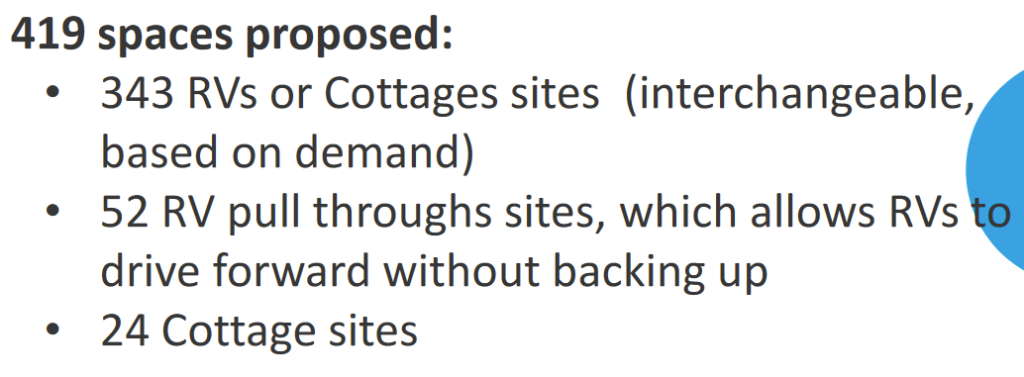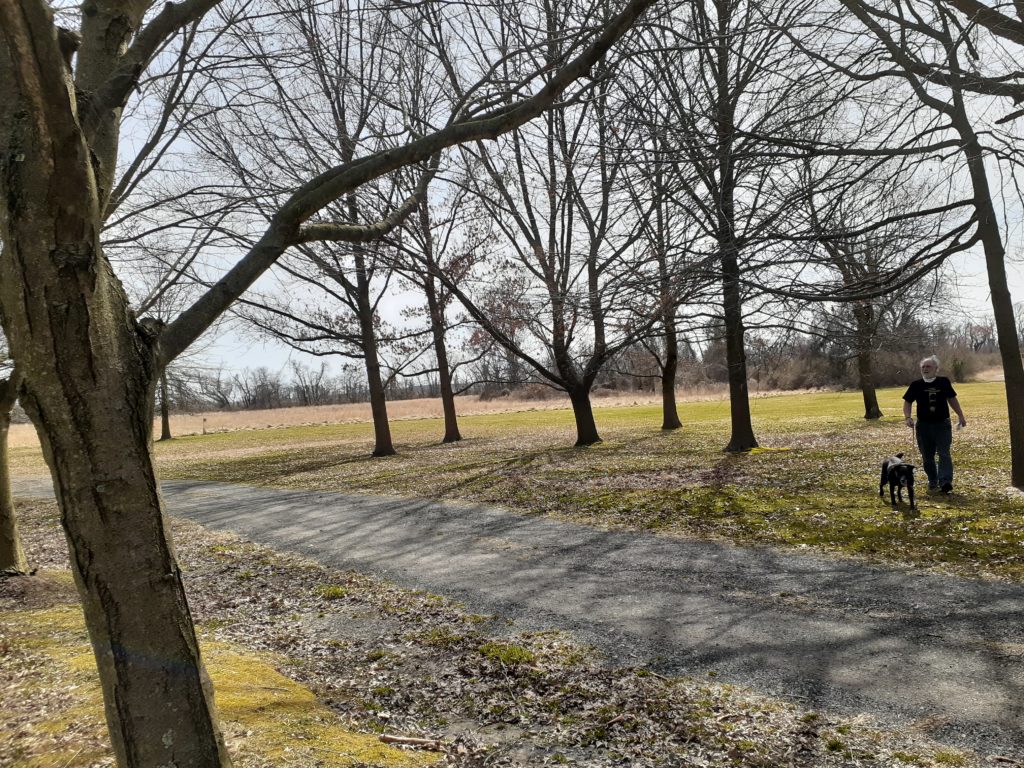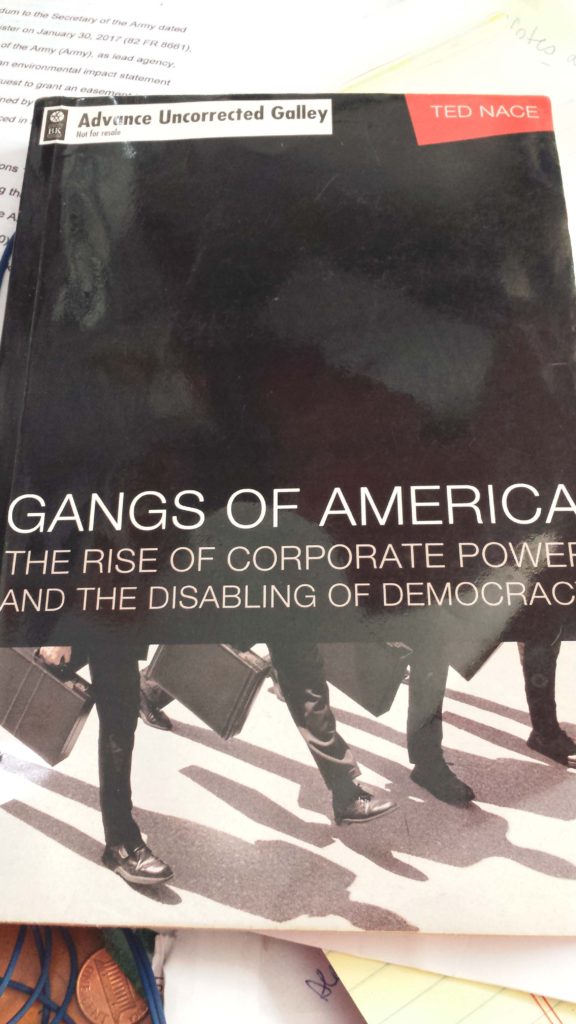Ft. DuPont campground?
March 24th, 2021

The other day, while hanging out over pizza, REAL pizza, at the DNREC park where we used to run the doggies…
MOV00166 – At Delaware City Park
MOV00165 – At Delaware City Park
MOV00164 – At Delaware City Park
MOV00163 – At Delaware City Park
MOV00162 – At Delaware City Park – check Ken running!
MOV00161 – At Delaware City Park – Look at them go!

And now they want to wreck this park with an RV parking lot.

I realized yesterday that I’d not posted about this dreadful idea:

Here’s the powerpoint with the “preliminary plan” from August, 2019. There’s no final plan in the Delaware City Council’s Agenda or Minutes.
Blue Water’s Proposed 422-Site Del. Proj. Receives OK
Delaware City Council okays controversial RV campground near Fort DuPont State Park
Given the water table, I cannot imagine what they intend to do with the sewage from that many sites.
Despite that approval, I don’t see any sign of construction starting. There were dump trucks up and down the road, but they went to the C&D canal and then headed east!

Gangs of America – good reading these days
February 9th, 2017

Looking forward to catching up with Ted Nace soon in San Francisco. He’s author of Gangs of America: The Rise of Corporate Power and the Disabling of Democracy — get your copy HERE.
Alan Muller and I had the good fortune of meeting him through our “no coal” work and the “No New Coal Plants” list that was instrumental in stopping so many coal gasification plants across the U.S., including Minnesota’s Excelsior Energy Mesaba Project (see also www.camp-site.info)and the NRG coal gasification plant proposed for Delaware. He wrote this Orion article about that coal gasification fight (a couple things are off — hey, Ted, it’s an ORANGE crate!!):
And from that, he also also wrote:
Climate Hope: On the Front Lines of the Fight Against Coal
Check these out, you can find them reasonably priced at www.abebooks.com. Support your independent bookseller!
Alan Muller on Bloomgate
November 5th, 2016
Alan Muller is the executive director of Green Delaware.
Muller: Time to think about…
August 23rd, 2015
Commentary by Alan Muller, Green Delaware, in today’s Delaware State News:
Commentary: Time to think about Delaware’s Peterson, Coastal Zone Act
So what about this Coastal Zone Act? What makes it special and worth preserving.
Alan Muller is Executive Director of Green Delaware.
Biden? A distraction, not a contender.
August 7th, 2015
Joe Biden and Champ
I wish Joe Biden would get over himself and stop musing about a Presidential run. He is not a contender. Biden’s intent? I’d guess it’s nothing more than a distraction from the strong showing by Bernie Sanders. Bernie is the nightmare of Democratic leadership, precisely because he’s the most compelling candidate for democratic voters (small “d”), people interested in preservation, revival, of our democracy.
Biden sure isn’t what I’d look for in a candidate. A recent post on Politico, How a Young Joe Biden Turned Liberals Against Integration, brings to light Biden’s efforts to preserve segregation. That should be enough to take him off anyone’s potential Presidential candidate list.
Alan Muller, Green Delaware, has had to deal with Biden for a long time now, and has a lot of insight into Biden’s character based on Biden’s record and actions. One story I’ve heard often is of a group opposing the Iraq war meeting with Biden in his office, and of Biden’s absolute and nasty dismissal of them and their concerns (expletives deleted for this PG-13 post).
Racial issues have been a struggle for Delaware, and Biden provides an example of white resistance to integration. Delaware was a slave state. Though it bills itself “The First State,” and though Delaware was the first state to ratify the Constitution, it was also the first state outside the Confederacy to reject the 14th Amendment, in 1867, and Delaware was very slow to ratify the 14th Amendment — it held off until 1901, 33 years after it was approved by enough states to be added to the Constitution.
Here’s an example of Biden’s “leadership,” a reminder of Biden’s efforts as a U.S. Senator to maintain segregation:
How a Young Joe Biden Turned Liberals Against Integration

